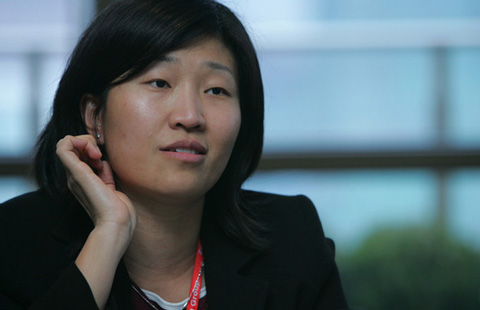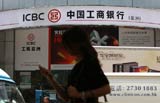HK to add more Islamic banking funds
(Agencies) Updated: 2015-05-15 08:17A year after debuting an Islamic investment fund in Hong Kong, RHB Asset Management Sdn plans two more as it seeks to develop awareness in the Chinese market.
The first of the new funds, which will target Shariah-compliant stocks and bonds, is due to start this month and the second by the end of September, Ho Seng-yee, chief executive officer of the Kuala Lumpur-based company, said in an interview. The existing RHB-OSK Islamic Regional Balanced Fund, which invests in Islamic equities and fixed income, has 15.5 million ringgit ($4.3 million) of assets.
"Despite the global spread of Islamic finance, the development in China is still at the initial stage," Ho said. "We believe the market will continue to grow as it could be the start of a new financial relationship between China and the Islamic world."
While Hong Kong is preparing to sell a second sovereign sukuk after rationalizing its tax laws in 2013, the China mainland has yet to introduce fairer legislation for Shariah-compliant finance. Bank of Ningxia Co stopped offering such products after starting a pilot program in 2009, as the nation struggles with a shortage of Islamic experts and an inflexible legal framework.
Ideal market
RHB set up the current fund in April 2014 and it delivered a 13.5 percent return in its maiden year, Ho said.
China, where 1.8 percent of the 1.36 billion people are Muslims, is also attracting other Islamic money managers. Maybank Asset Management Group Bhd in Kuala Lumpur will register its existing Shariah-compliant equities fund in Hong Kong by the first quarter of 2016, Chief Executive Officer Nor' Azamin Salleh said in a May 5 interview in Kuala Lumpur.
Qatar International Islamic Bank QSC and QNB Capital LLC signed an agreement last month with China-based Southwest Securities Co to develop Islamic finance products in the country. Potential deals include sukuk and infrastructure investments, according to Qatar International Islamic Bank.
"Hong Kong is an ideal market for Shariah funds looking for mainland exposure," said Davide Barzilai, the Asia Pacific Islamic finance head at law firm Norton Rose Fulbright based in the city. "China is a heavily regulated market, so care needs to be taken when it comes to making investments there and structuring the fund flows."
Sukuk plan
On the domestic front, the government of the northwest region of Ningxia, where a third of the 6.5 million people practice Islam, announced in December it was planning to raise as much as $1.5 billion from a combination of sukuk and conventional debt. They have not yet been sold.
The Chinese mainland represents an untested market for Islamic finance, according to Hong Kong-based Bosera Asset Management (International) Co, which is partnering with Maybank in offering the Shariah-compliant equities fund.
"We are proceeding with a lot of planning because they have not been served with any wealth-management products," Conrad Cheng, Bosera's deputy chief executive officer, said in Kuala Lumpur.
Challenges abound
Bank Muamalat Malaysia Bhd said in July last year that it scrapped a plan to offer Islamic products at branches of Bank of Shizuishan in Ningxia after the Chinese lender asked the Southeast Asian lender to take a stake.
While China presents significant opportunities for Islamic financial institutions, there are challenges including "the need for changes to the tax laws", according to law firm Appleby Global Group Services Ltd.
"Coupled with growing individual wealth and disposable income, as well as the growth of the Ningxia region as an Islamic financial center, these factors present attractive potential," Jeffrey Kirk, Appleby's head of Islamic finance, said from his base in the British Virgin Islands.
- Coating firms hit by realty downturn
- Painting a brighter future for green growth
- Top 10 most profitable mainland-listed companies
- Scotland offers blueprint for national golf success
- Bankers tempted by lucrative prospects of Internet finance
- Bars no barrier for tycoon to rake in profits
- Yellow metal demand wanes in first quarter
- Real estate companies join forces

















